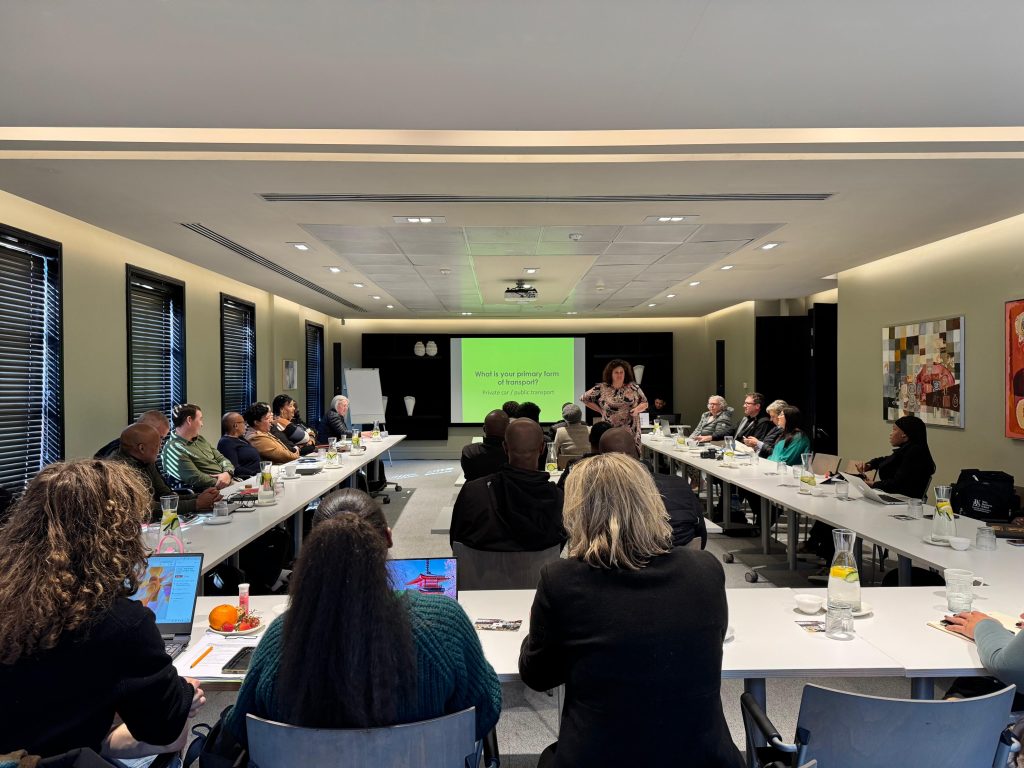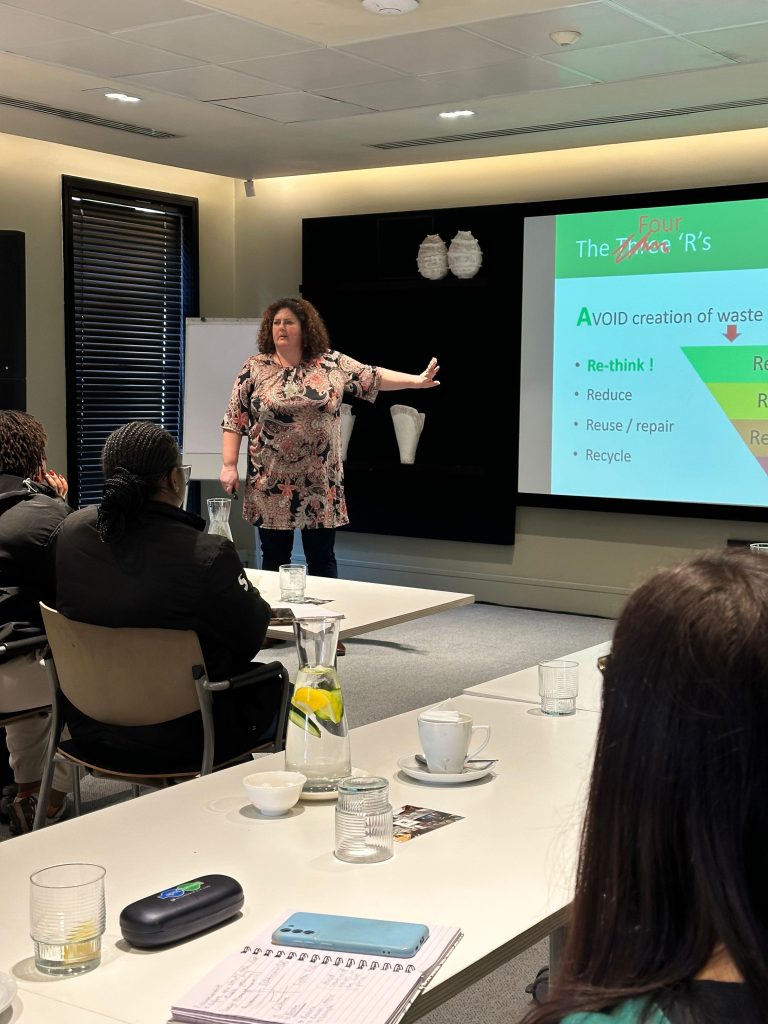Event professionals in Johannesburg and the surrounding areas were invited to learn the basics of sustainability within the MICE (meetings, incentives, conferences, and exhibitions) industry on 22 July 2025. The full-day workshop, which took place at The Forum Company’s The Campus venue in Bryanston, gave attendees guidance on the environmental impact of events and how to reduce it.

EGF founding member and sustainability expert Grace Stead facilitated the workshop, welcoming delegates with a stark reminder of what is at stake. She explained how climate change and global resource pressures are changing greening policies, and in turn affecting event deliveries. She challenged everyone to “feel” their carbon footprint with graphic visuals and a Q&A interrogating their sustainable practices at home and on a daily basis.
Stead explained that change starts with intention. “Sustainability is not an add-on after the fact, it’s a must from the beginning until the end of an event. We have to question every choice we make and minimise where possible along the way.”
Sustainability starts at the planning phase

The workshop explored core concepts around waste reduction, energy efficiency, water conservation, and eco-procurement, contextualising each within the lifecycle of an event. Stead highlighted how smarter planning, responsible sourcing, and early engagement with suppliers and contractors can help manage waste more effectively.
She emphasised that avoiding waste should always come before the famous four “R’s” – reuse, reduce, recycle, repurpose – detailing a case study from the Netball World Cup 2023, where greening principles were integrated into both the planning and execution of the event. From environmentally responsible signage and sustainable food procurement to legacy planning and community engagement, the case study offered attendees tangible examples of how even large-scale events can be more sustainable with the right strategy and stakeholder collaboration.
Glynis Hyslop, Managing Director of The Forum Company, presented a behind-the-scenes look at the venue’s sustainability journey. Her session showcased how they have implemented initiatives such as energy-efficient lighting, water-saving measures, responsible waste management, and a focus on sourcing local products.
A longstanding EGF member, The Forum underscores the importance of venue choice in event greening – and the benefits of partnering with suppliers and locations that share a commitment to reducing impact.
Putting sustainability into practice
The afternoon sessions focused on the “how” of event greening, breaking it down into approachable, high-impact steps. Stead offered a simplified roadmap for implementation, starting with green team mobilisation, followed by policy development, supplier engagement, and clear on-site communication.
Delegates were encouraged to start with the areas that have the greatest environmental impact – such as transport, food, and energy – and to track their progress with metrics that can demonstrate improvement over time.
By taking ownership of our impact, engaging with platforms like the EGF, and leveraging the tools and resources we share (such as these workshops), the event industry can become more sustainable.
